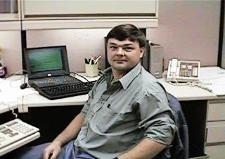Many people complain about the money spent on space exploration but I for one do not. Yes, I hear the cries about how they would better spend the money here. When you dig into it though you find that they always have short sighted personal interest at the heart of their better ways to spend the money. They have gotten so good at protesting and obstructing everything that NASA has become something of a laughing stock globally.
Back in 2015 I wrote a piece for the History News Network titled “What Would Happen If Humanity Was Suddenly Rebooted?” While that topic and many others were behind the novel “John Smith – Last Known Survivor of the Microsoft Wars,” it’s a question the leaders of every nation needs to ask because one way or another a reboot will happen and sooner than most of us would like.
This past year I wrote a 7 part series for Interesting Authors titled “How Does the Human Race Wipe Itself Out?” A great many NPR radio programs and various news stories lead me down this thought path. To understand why building a colony on Mars is so important you have to understand a bit of this thought path.
- Superbugs are becoming immune to all existing therapies and few, if any, drug companies are working on better products to kill them. Even Time magazine is writing articles about this now.
- While the year 2050 is debated, the fact Earth’s population will reach 9 billion barring a global war or pandemic is not. Feeding 9 billion has become a topic discussed openly by groups from the culinary, scientific and agriculture communities.
- Dovetailing in with the previous topic Global Warming is directly impacting our ability to produce food now. There are already 4 famines in Africa. Growing up and still living on a family farm I see first hand how the shifting weather patterns impact our ability to both plant and harvest traditional crops. The NPR story on eating crickets really freaked me out when I heard it.
- The amount of safe potable water available for human consumption is shrinking due to contamination caused by this industrial age.
- The age old adage “We are the sum of our past.”
To understand why Mars matters one has to ask a very simple question:
Should the human species be allowed to go extinct when it dies off on earth?
It’s a simple question. If you answer it yes, then Mars doesn’t matter to you. For those who answered no Mars is of paramount importance, not only because it provides humans with an offsite backup of both their knowledge and species but because of all the problems we have to solve to actually establish a successful colony on the planet.
Those currently under the age of 30 probably have no idea just how many products you use today which are consumer versions of what NASA and its contractors created for the space program. A short list is here. There are now enough spinoffs that NASA has an official site. There is also some gray area items like Tang and Teflon. Yes, they were both invented outside of the space program but their use in the space program made them household names. Then there were other products like Space Food Sticks which I’m not certain about. I do know the chocolate ones tasted good! you can visit one of the sites listed in this article and try them for yourselves.
What you have to begin to realize is those supposedly obscene amounts of money thrown at the space program to solve the problems of space travel ultimately produce things which better our lives. The most immediate problem the Mars project can help us with is our growing shortage of potable water. Currently around 1 billion people don’t have access to “safe” drinking water. This is a problem which is going to get worse, not better. As we all recently learned from the Flint Michigan story, you don’t have to be in a third world country to suddenly not have safe drinking water. Current desalination technology is resource intensive and, in many cases, ironically contributes to the problem if it dumps its waste water back into the ocean. A new, low energy technology for desalination needs to be invented. Preferably one which fully extracts all of the salt and minerals separating them into useful commodities. This is exactly the problem NASA (and everybody else) has to solve if they want to use the water on Mars for anything.
Commercial companies won’t spend the money to find that technology because it will be massive. They will continue making incremental improvements to their existing products while waiting for someone else to solve the problem. When one of the Mars Colony projects solves this problem we all get potable drinking water no matter how badly our industrial lives have messed the planet up.
The Mars Colony projects will also stall off our having to turn into cannibals. It cannot fix the problem, but, to support a colony they will have to grow food starting with virtually nothing. If you have not yet seen “The Martian” you should. Just don’t do it before supper. It deals with the extremes one has to go to solve this problem when you suddenly don’t have a choice.
Now we get to the problems the Mars Colony cannot help us with: over population and superbugs.
There is no way, in the time we have, to build a Mars Colony of sufficient size and agricultural capabilities to store our excess population. By “excess population” I mean the roughly 4 billion too many of us there are on this planet right now. It’s not widely talked about during conversations on feeding 9 billion, but, the human population our planet can comfortably sustain is closer to 4 billion. By comfortably sustain I mean that global agriculture can cease trying to push plants and animals to be an ever increasing food supply. Yes “free range” is a nicer life for many animals provided there are not coyotes, chicken hawks and other predators about, but, it is pretty close to impossible to raise the quantity of food the planet needs that way. You were paying attention when I mentioned the NPR story about eating crickets weren’t you? That’s not fringe thinking. This is actually happening at more than one college campus and even the Wall Street Journal is writing articles about companies creating food from insects.
Superbugs may well do us in. Our own bad behavior created those things. We allowed corporations to pursue quarterly profits over public good and we allowed marketing companies to convince us we needed to kill every bacteria in our home. As a consequence antibacterial soaps and hand sanitizers sold by the truckload. We kept hitting bacteria with what amounted to low dose antibiotics and they got stronger. Now certain strains can take everything we have to throw at them.
At this point it becomes pretty obvious if we don’t choose to nuke each other out of existence, famine or disease will purge the excess population for us. No, we don’t get to choose. Yes, if disease beats famine its definition of “excess population” will be a significantly greater number than one we would come up with. Most likely it will run unchecked until we are either extinct or close enough.
What are humans to do?
Well, they have an offsite backup of people, knowledge and technology on that Mars Colony. Hopefully it was some of our best and brightest so they not only learn from our stupidity but immediately start searching for their own offsite backup.

Roland Hughes started his IT career in the early 1980s. He quickly became a consultant and president of Logikal Solutions, a software consulting firm specializing in OpenVMS application and C++/Qt touchscreen/embedded Linux development. Early in his career he became involved in what is now called cross platform development. Given the dearth of useful books on the subject he ventured into the world of professional author in 1995 writing the first of the “Zinc It!” book series for John Gordon Burke Publisher, Inc.
A decade later he released a massive (nearly 800 pages) tome “The Minimum You Need to Know to Be an OpenVMS Application Developer” which tried to encapsulate the essential skills gained over what was nearly a 20 year career at that point. From there “The Minimum You Need to Know” book series was born.



